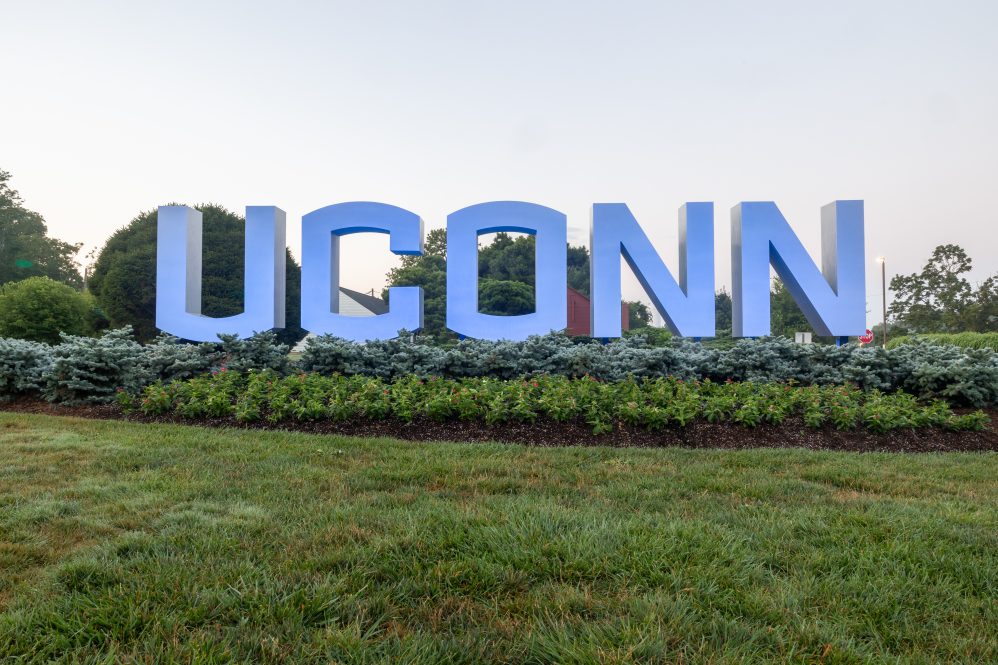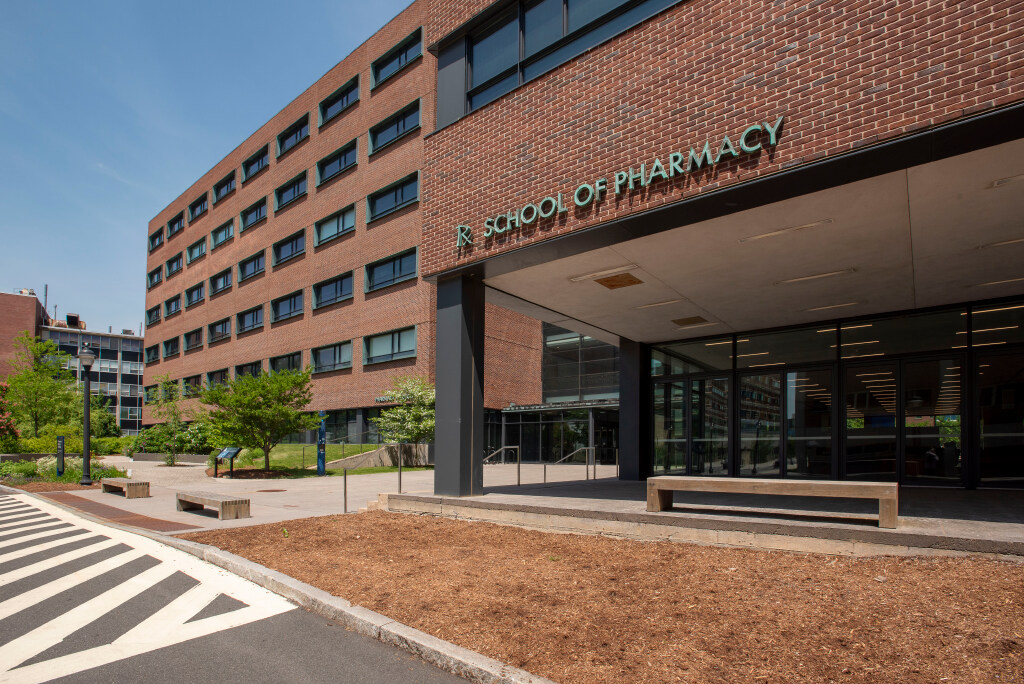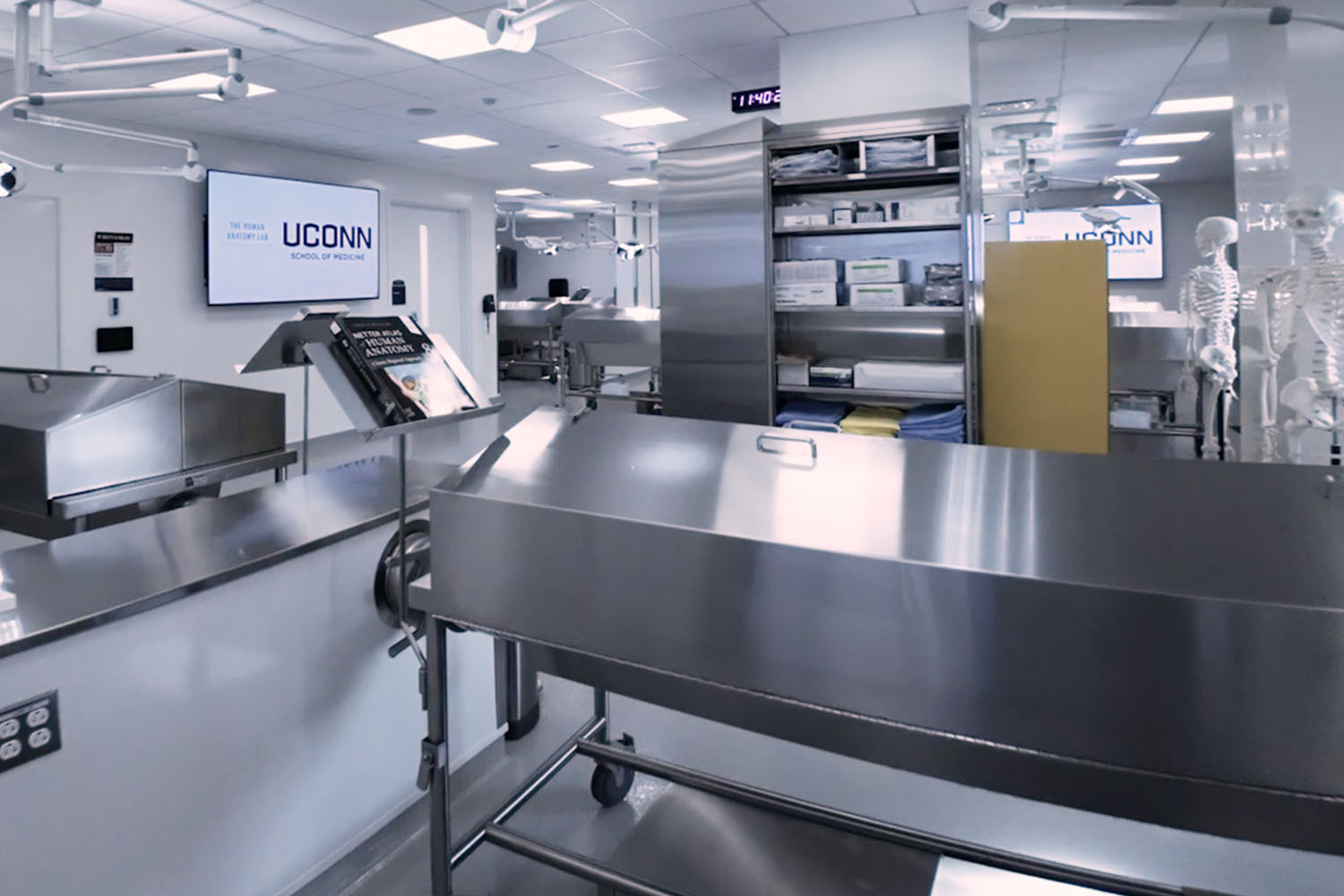Five UConn faculty members received prestigious CAREER Awards from the National Science Foundation (NSF) in the 2025 cycle.
“Our students come to UConn to learn from the very best,” says UConn President Radenka Maric. “These awards are a testament to the quality of research being done at UConn, and to our institution-wide commitment to excellence. I am very proud of our progress, and with faculty members like these, I look forward to reaching even greater heights in the years to come.”
The Faculty Early Career Development (CAREER) Program is a highly competitive and prestigious award for early-career scientists. NSF CAREER funding supports researchers in establishing a strong basis for a lifetime of leadership in research and education.
These awards represent a $3 million total investment by the NSF in UConn’s early career faculty.
Each project includes a significant educational and/or outreach element such as training undergraduate and graduate students, hosting seminars to share research, collaborating with stakeholders, and developing courses related to the work.
The faculty members who received the awards in the 2025 cycle are:

Daniel Anglés-Alcázar, Associate Professor, Physics, College of Liberal Arts and Sciences. “Pushing the Frontiers of Galaxy Evolution Modeling with Multi-Scale and Empirically Constrained Hydrodynamic Simulations”
Through this award, Anglés-Alcázar will develop improved simulations of galaxy formation and evolution.
Anglés-Alcázar’s project is concerned with two levels of simulations – extremely high-resolution models of individual galaxies (like our own Milky way) from the Big Bang to the present day, and big-picture simulations that take into account many galaxies and their large-scale environment with much less detail.
Anglés-Alcázar will use these simulations, constituting thousands of plausible universes, to train machine learning models to be able to extract key physical parameters related to the origin of our universe. These simulations will also help astronomers better interpret observations and understand the detailed physics of galaxy formation.
“We’re interested in what galaxies can tell us about the fundamental properties of the universe,” Anglés-Alcázar says. “We’re going to generate these very large data sets and use them to train machine learning models that will be able to extract the fundamental parameters that govern the universe, despite the fact that we still don’t fully understand the physics of galaxy formation.”
Francesco Carbone, Assistant Professor, Mechanical Engineering, College of Engineering. “CAREER: The Role of Electric Charges and PAHs in Molecular Clustering and Soot Inception in Laminar Premixed Flame”

Carbone’s project will develop a model to predict soot formation.
Specifically, Carbone’s research will lead to a better understanding of the role electric charges play in how Polycyclic Aromatic Hydrocarbons (PAHs), carcinogenic compounds produced from burning organic matter like fossil fuels or wood, cluster to form soot.
This work will support efforts to reduce the environmental and human health impacts of soot emissions, which are a feature of many modern technologies, including car engines and manufacturing. Improving predictions of soot formation will support the development of cleaner combustors for use in these sectors.
Diego Cerrai, Assistant Professor, Civil and Environmental Engineering, College of Engineering. “APEX-STORM: Advancing the Preparedness to Extreme Winter Storms Through Outage and Restoration Model”

This award will support Cerrai’s work on an Outage Prediction Model (OPM) for power outages winter storms.
This project focuses on better understanding snow and ice accretion on infrastructure during winter storms. This understanding, in turn, will enable the improvement of the OPM in forecasting accretion, and more accurately predicting power outages and restoration timelines.
“The goal here is to predict snow and ice accretion on powerlines, because those are very correlated to power outages,” Cerrai says.
Cerrai will also improve modeling of road conditions during storms to help road crews move to restore power more safely and effectively.
Cerrai is collaborating with power companies and decision-makers to help them understand how to best use the OPM through this grant.
Yao Zheng, Associate Professor, Statistics, College of Liberal Arts and Sciences. “New Frontiers in Time Series Analysis”

Zheng will develop new statistical methods to better analyze today’s increasingly complex time series data. Time series data is any data observed over time, like temperature or GDP.
Such data may involve many variables at once, contain non-linear relationships, shift over time, arrive at different frequencies, or be incomplete — making it harder for statisticians and decision-makers to extract reliable insights.
Zheng will integrate established statistical frameworks with contemporary machine learning approaches, with an emphasis on statistical inference. The project aims to advance innovation in time series analysis, bridge the gaps between interpretability, uncertainty quantification, and black-box algorithms, and promote the use of time series data collected from diverse sources.
“Pushing the boundaries of time series analysis is our goal,” Zheng says. “Our team wants to incorporate the best of machine learning while retaining the unique strengths of statistical methods.”
Junbo Zhao, Electrical and Computer Engineering, College of Engineering. “CAREER: A New Robust Power System Dynamic Estimation Paradigm with High Penetration of Black-box Inverter-based Resources: Theory, Algorithms, and Applications”
Zhao is now faculty at Dartmouth College.



